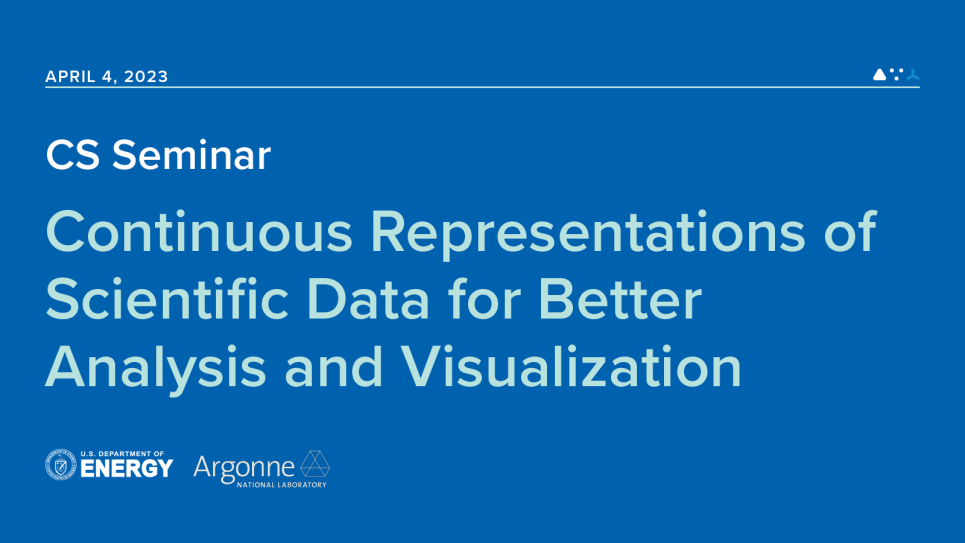
Continuous Representations of Scientific Data for Better Analysis and Visualization
Continuous representations of scientific data are mathematical functions, often called “models,” that closely approximate a discrete data set in a point-wise sense, but also possess desirable properties like continuous differentiability. Some data analysis tasks can be carried out more efficiently or effectively by using these models as proxies for the original discrete data set, which has spurred research into creating and understanding these models. Here, we will consider models based on B-spline functions, although other approaches (for example, models based on neural networks) are possible.
This seminar will provide an overview of B-spline models and discuss some of the properties that make them attractive as an analysis tool. We will then explore some recent work that improves the way models are constructed when the provided data are very sparse. Finally, we will discuss ways that B-spline models can be extended for more complex analysis tasks, focusing in particular on techniques for rapid line integration.
David Lenz is a postdoctoral appointee at Argonne National Laboratory in the Mathematics and Computer Science Division. He received his PhD in Mathematics with Specialization in Computational Science from the University of California San Diego in 2020. His research focuses on approximation theory and modeling of large-scale scientific data sets. He also studies space-time computational methods and four-dimensional mesh generation.